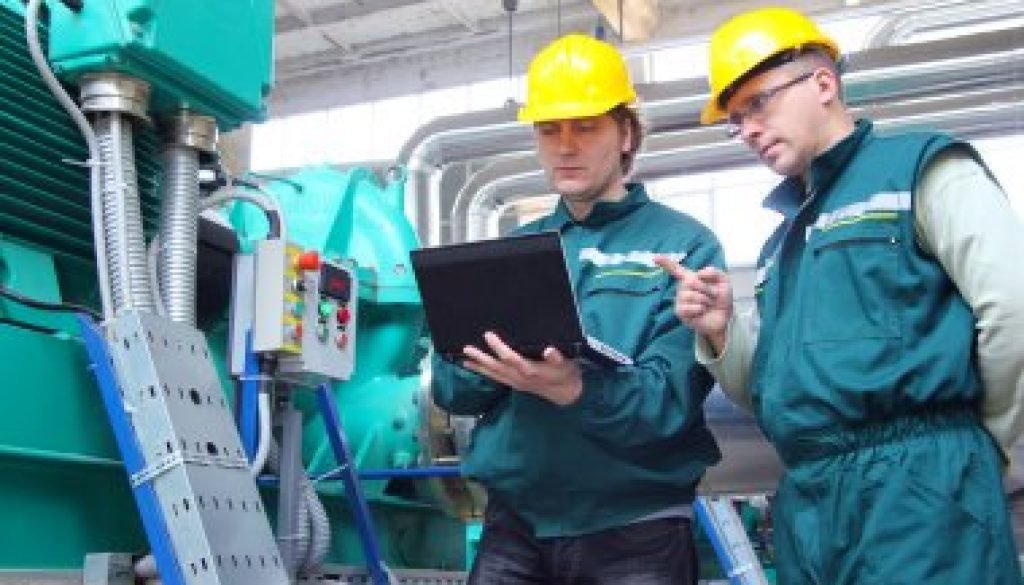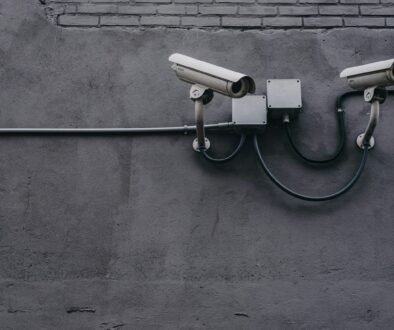Role of Computer in the Industries

In the modern world, computers have become an integral part of various industries. They have revolutionized the way we work, communicate, and manage tasks. This article explores the multifaceted role of computers in industries and how they have transformed the way businesses operate. Lets uncover role of computer in the industries
The Evolution of Computers in Industries
The integration of computers into industries has a rich history. Initially, computers were used for basic data processing tasks. Over time, they evolved into powerful machines capable of handling complex operations.
In the mid-20th century, computers were large, room-filling devices primarily used for mathematical calculations and data storage. They were not particularly efficient by today’s standards, but they laid the foundation for future technological advancements.
The first significant milestone was the development of the transistor, which led to the miniaturization of computers. This made them more accessible to businesses and paved the way for innovations in various industries.
Automation and Efficiency
One of the most significant contributions of computers to industries is automation. They have streamlined repetitive tasks, reducing human errors, and enhancing efficiency. Industrial robots and computer-controlled machinery have revolutionized production processes.
With the advent of automation, tasks that were once time-consuming and labor-intensive can now be accomplished at remarkable speeds. This has led to increased production rates and cost savings for industries. Moreover, automation has improved workplace safety by reducing the need for humans to perform dangerous tasks.
Automation goes beyond manufacturing. In the service industry, chatbots and virtual assistants provide efficient customer support and assistance, enhancing the customer experience while reducing operational costs.

Data Analysis and Decision-Making
In the age of data, computers play a pivotal role in analyzing large datasets. They provide valuable insights and aid in decision-making. Businesses can make informed choices based on data-driven analytics.
Advanced software and algorithms can process vast amounts of data in real-time, identifying trends and patterns that would be impossible for humans to detect. This capability is particularly valuable in fields such as finance, where quick and accurate decision-making is crucial.
Data analysis is not limited to large corporations. Small and medium-sized businesses also benefit from the ability to track customer behavior, market trends, and sales data. This allows them to adjust their strategies and stay competitive in the market.
Computer-Aided Design (CAD)
In the fields of architecture and engineering, Computer-Aided Design (CAD) software has transformed the way designs are created. Architects and engineers can draft intricate plans and models with precision, saving time and resources.
CAD software allows professionals to design, modify, and analyze projects in 2D and 3D. This technology has drastically reduced the time required for design and has increased the accuracy of plans. It is widely used in architecture, civil engineering, and product design.
Moreover, CAD has fostered collaboration among professionals, allowing them to work on projects remotely in real-time. This has not only accelerated the design process but has also led to innovations in structural engineering and architecture.
Role of Computer in the Industries
Role in Manufacturing
In manufacturing, computers control the entire production process, from inventory management to quality control. They ensure consistency and precision, resulting in higher-quality products.
Computer-controlled machinery and robotics have made it possible to manufacture products with incredible precision. The manufacturing process has become more flexible, allowing rapid changes in production lines to accommodate different products and variations.
Computer-integrated manufacturing (CIM) is a holistic approach to manufacturing that uses computers to manage and optimize all production processes. It includes product design, manufacturing planning, and control, as well as materials handling. CIM has transformed the manufacturing landscape, making it more adaptable and responsive to market demands.

Computers in Healthcare
The healthcare industry relies on computers for patient records, diagnostic tools, and medical research. Electronic Health Records (EHRs) have improved patient care and streamlined administrative tasks.
EHRs allow healthcare providers to access patient information quickly and securely. This leads to more accurate diagnoses and treatment decisions. Furthermore, the electronic storage of medical records reduces the risk of losing or misplacing important patient information.
In addition to EHRs, diagnostic equipment such as MRI machines, CT scanners, and ultrasound devices are powered by sophisticated computer systems. These technologies provide detailed and real-time imaging, aiding in the diagnosis and treatment of various medical conditions.
Telemedicine, another aspect of healthcare, relies heavily on computer technology. It enables patients to consult with healthcare professionals remotely, expanding access to medical expertise, especially in remote or underserved areas.
Read about AI Copywriting: The Future of Content Creation
Computers in Agriculture
In agriculture, computers assist in crop management, weather forecasting, and soil analysis. They enhance crop yields, reduce waste, and promote sustainable farming practices.
Farmers can use technology to monitor soil conditions, track weather patterns, and control irrigation systems more efficiently. These tools help maximize crop yields while minimizing resource use and environmental impact.
Precision agriculture, often called “smart farming,” involves the use of GPS technology, sensors, and drones to monitor and manage agricultural practices. It allows farmers to precisely apply fertilizers, pesticides, and water, reducing waste and environmental impact.
Computers in Logistics and Supply Chain

Efficient logistics and supply chain management are crucial for businesses. Computers optimize inventory control, track shipments, and ensure timely delivery, reducing costs and improving customer satisfaction.
Inventory management software allows companies to keep just enough stock on hand to meet demand. This minimizes storage costs while preventing stockouts or overstocking. Automated tracking systems provide real-time data on the location and condition of products in transit, ensuring efficient and on-time delivery.
E-commerce has become a major driver of the global economy, and its success relies on robust logistics and supply chain management powered by computers. The ability to track and trace packages, estimate delivery times, and manage returns efficiently is essential for providing a seamless online shopping experience.
Impact on Communication
The advent of the internet and email has revolutionized communication within and between industries. Computers have made it easier for businesses to connect with customers and partners worldwide.
Email, instant messaging, and video conferencing have made it possible for businesses to communicate and collaborate on a global scale. This has opened up new opportunities for international trade and cooperation, fostering economic growth.
Moreover, social media and online marketing have become vital tools for businesses to reach and engage with their target audiences. Companies can use data analytics to tailor their marketing strategies to specific customer segments, resulting in higher conversion rates and customer satisfaction.
Read about Android App Development: Unlocking the Power of Innovation
Challenges and Concerns
Despite their numerous benefits, computers in industries also pose challenges. Security risks, such as data breaches and cyberattacks, require constant vigilance. Additionally, there is concern about job displacement due to automation.
Cybersecurity is a critical issue that industries must address. The increasing reliance on computer systems and the internet has made businesses vulnerable to cyber threats. Data breaches can lead to financial losses and damage to a company’s reputation.
To counter these threats, companies invest in robust cybersecurity measures, including firewalls, encryption, and employee training. Additionally, the field of cybersecurity itself has grown, with professionals dedicated to safeguarding systems and data.
The automation of tasks also raises concerns about job displacement. As more processes become automated, there is a potential for job losses in certain industries. However, it’s important to note that automation can also create new job opportunities in fields related to technology and software development.
Furthermore, the collaboration between humans and machines has the potential to enhance productivity and creativity. Machines can handle repetitive and data-driven tasks, freeing up human workers to focus on higher-level decision-making and creative problem-solving.
The Future of Computers in Industries
The role of computers in industries is only expected to grow. With advancements in artificial intelligence and machine learning, they will play an even more significant role in decision-making and innovation.
Artificial intelligence (AI) is poised to transform industries by enabling machines to perform tasks that were once the exclusive domain of humans. AI-powered systems can analyze data, make predictions, and even learn from experience. This has the potential to revolutionize industries such as healthcare, finance, and transportation.
Machine learning, a subset of AI, is making computers increasingly proficient at tasks like natural language processing and image recognition. This has practical applications in industries like customer service, content recommendation, and autonomous vehicles.
In the manufacturing sector, the Internet of Things (IoT) and Industry 4.0 are driving the integration of computers into everyday industrial processes. Machines communicate with each other and with central systems to optimize production, reduce downtime, and predict maintenance needs.
The concept of “smart cities” is also on the horizon, where computers will manage urban infrastructure to improve energy efficiency, transportation, and public services.
As technology continues to evolve, industries that embrace these changes will likely see greater success and competitiveness. The integration of computers and advanced technology will open up new possibilities and create innovative solutions to age-old problems.
Conclusion
In conclusion, the role of computers in industries cannot be overstated. They have transformed the way businesses operate, enhancing efficiency, accuracy, and communication. While challenges exist, the future promises more innovation and integration, making industries more dynamic and competitive.
The continued evolution of computer technology will shape the industries of tomorrow. Companies that invest in technology and adapt to the changing landscape are more likely to thrive in the digital age.
Additional Links
FAQs
Q1: What is the role of computers in industries? A1: Computers play a crucial role in industries by automating processes, improving efficiency, and enabling advanced data analysis and management.
Q2: How do computers enhance efficiency in industries? A2: Computers automate tasks, such as production, inventory management, and quality control, which leads to increased productivity and reduced human errors.
Q3: What are some examples of industries that heavily rely on computers? A3: Industries such as manufacturing, healthcare, finance, aerospace, and logistics heavily depend on computers for their operations.
Q4: How do computers impact data management in industries? A4: Computers facilitate data storage, retrieval, and analysis, helping industries make informed decisions and predict future trends.
Q5: Can you explain the role of computers in quality control within industries? A5: Computers are used in industries to monitor and control the quality of products through sensors and automated inspection processes, ensuring consistency and compliance with standards.
Q6: What is the significance of computer-aided design (CAD) in industrial processes? A6: CAD software on computers enables the creation of detailed, precise, and 3D models, which are essential for designing and testing products and industrial equipment.
Q7: How do computers contribute to inventory management in industries? A7: Computers help track inventory levels, predict demand, and streamline the supply chain to minimize costs and ensure products are readily available.
Q8: What is the role of computers in remote monitoring and control in industrial settings? A8: Computers enable remote monitoring and control of industrial equipment and processes, improving safety and efficiency.
Q9: How have computers impacted the development of Industry 4.0 and the Internet of Things (IoT)? A9: Computers are at the heart of Industry 4.0 and IoT, connecting devices, sensors, and systems to collect and analyze data for intelligent decision-making and automation.
Q10: What are the potential challenges in integrating computers into industries, and how can they be addressed? A10: Challenges may include cybersecurity risks and workforce training. These can be addressed through robust security measures and ongoing training programs for employees
MCQs
- What is the primary benefit of automation in industries? a) Reducing human errors b) Increasing manual labor c) Slowing down production d) Decreasing efficiency
- What role do computers play in data analysis and decision-making? a) They hinder the decision-making process. b) They make decisions without human input. c) They provide valuable insights and aid in informed choices. d) They are not involved in data analysis.
- What is the significance of Computer-Aided Design (CAD) in architecture and engineering? a) It is not used in these fields. b) It speeds up design processes. c) It only works in 2D. d) It is used for medical research.
- How do computers impact the manufacturing process? a) They reduce precision and consistency. b) They slow down production lines. c) They control production and ensure precision. d) They have no role in manufacturing.
- In the healthcare industry, what is the purpose of Electronic Health Records (EHRs)? a) They have no impact on healthcare. b) They provide patient entertainment. c) They improve patient care and streamline administrative tasks. d) They increase the cost of healthcare.
- What technology allows farmers to monitor soil conditions, track weather patterns, and control irrigation systems efficiently? a) Telepathy b) Computer-Aided Design (CAD) c) Precision agriculture d) Robotic farming
- In logistics and supply chain management, what do computers optimize? a) Employee scheduling b) Inventory control, shipment tracking, and on-time delivery c) Marketing strategies d) Customer service
- How have computers revolutionized communication in industries? a) They have made communication slower. b) They have no impact on communication. c) They have enabled global communication and collaboration. d) They have increased costs of communication.
- What is one of the concerns regarding the role of computers in industries? a) Increased workplace safety b) Enhanced job security c) Data breaches and cyberattacks d) Reduced efficiency
- What is the future role of computers in industries expected to be? a) Less significant b) Unpredictable c) More significant, with advancements in AI and machine learning d) Isolated from decision-making
Answers:
- a) Reducing human errors
- c) They provide valuable insights and aid in informed choices.
- b) It speeds up design processes.
- c) They control production and ensure precision.
- c) They improve patient care and streamline administrative tasks.
- c) Precision agriculture
- b) Inventory control, shipment tracking, and on-time delivery
- c) They have enabled global communication and collaboration.
- c) Data breaches and cyberattacks
- c) More significant, with advancements in AI and machine learning.



